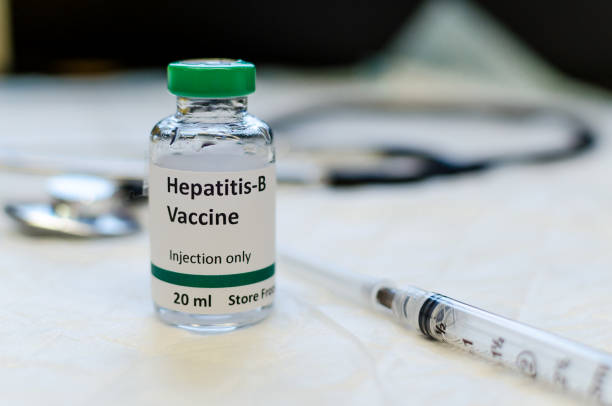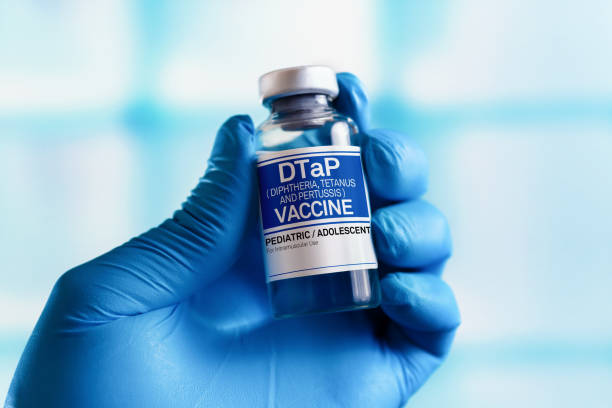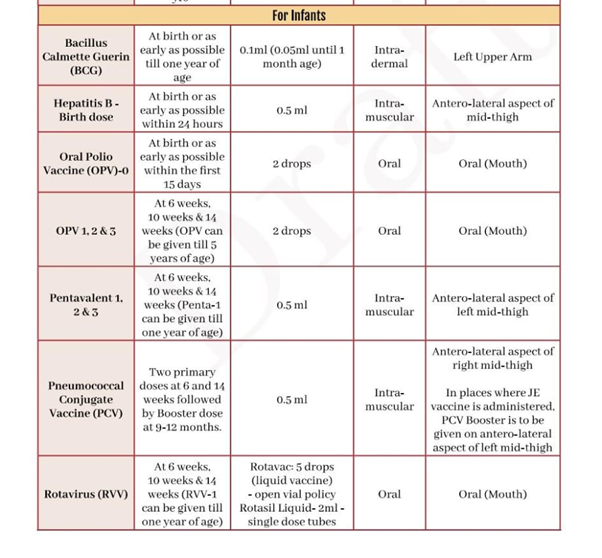Table of Contents
Introduction
As parents, one of the most important things we can do for our babies is to ensure they are protected from preventable diseases. Immunization is an essential step in safeguarding your baby’s health, and following the vaccine schedule for infants is crucial for their long-term well-being. Vaccines help strengthen your baby’s immune system and prevent serious illnesses that can be life-threatening.
In this article, we will dive into the vaccine schedule for infants, focusing on the key vaccines given during the first year. We will discuss the benefits, timing, and significance of each vaccine, along with the recommendations from health authorities. By understanding the vaccine schedule for infants, you can make informed decisions and ensure your baby receives timely protection.
What is the Vaccine Schedule for Infants?
The vaccine schedule for infants is a series of immunizations that your baby will receive within the first year of life. These vaccines are carefully planned to provide protection against diseases that can be harmful to babies, such as polio, hepatitis B, diphtheria, tetanus, and more.
In many countries, pediatricians follow a standardized vaccine schedule to ensure that babies get the necessary vaccines at the right time. The vaccine schedule for infants is based on guidelines set by health organizations such as the Centers for Disease Control and Prevention (CDC) and the World Health Organization (WHO). These guidelines help to ensure that babies receive the most effective protection from harmful diseases as early as possible.
Why is the Vaccine Schedule for Infants Important?
The vaccine schedule for infants is vital for several reasons. Here’s why:
- Protection Against Serious Diseases
Vaccines help protect your baby from potentially serious and even deadly diseases. For example, diseases like whooping cough and measles can lead to hospitalization or long-term complications, and vaccines can prevent these risks. - Building Immunity Early
Babies are born with some immunity passed from the mother, but that immunity decreases over time. Vaccines help build the baby’s immunity against diseases, reducing the risk of infections. - Community Protection
Immunizing babies not only protects your child but also helps protect others in the community, especially those who cannot be vaccinated due to medical reasons. This is known as herd immunity, which reduces the spread of diseases. - Safe and Effective
Vaccines are rigorously tested for safety and effectiveness. The vaccine schedule for infants is designed to give them the best possible protection in a safe and controlled manner.
Key Vaccines in the First Year
During the first year, there are several vaccines your baby will receive. These vaccines protect against a variety of diseases, and adhering to the vaccine schedule for infants ensures timely protection. Here are the key vaccines that your baby will receive in the first 12 months:
1. Hepatitis B Vaccine (HepB)
The hepatitis B vaccine is one of the first vaccines your baby will receive. It is typically given within 24 hours of birth, with additional doses given at 1-2 months and 6-18 months. Hepatitis B is a liver infection that can lead to chronic disease and even liver cancer, making vaccination essential.

2. Diphtheria, Tetanus, and Pertussis (DTaP)
The DTaP vaccine protects against three dangerous diseases:
- Diphtheria, a bacterial infection that can cause throat swelling and difficulty breathing.
- Tetanus, which causes painful muscle contractions and can be fatal if untreated.
- Pertussis (whooping cough), which can lead to severe coughing fits that interfere with breathing, especially dangerous for young infants.
This vaccine is typically given in three doses: at 2, 4, and 6 months.

3. Haemophilus Influenzae Type B (Hib)
Hib is a bacterial infection that can cause serious diseases, such as pneumonia, meningitis, and epiglottitis. The Hib vaccine is usually administered in three doses: at 2, 4, and 6 months.
4. Polio Vaccine (IPV)
Polio is a viral infection that can cause paralysis and, in severe cases, death. The polio vaccine is typically given at 2 months, 4 months, and 6-18 months.
5. Pneumococcal Conjugate Vaccine (PCV13)
This vaccine protects against 13 strains of the bacteria Streptococcus pneumoniae, which can cause pneumonia, meningitis, and blood infections. The PCV13 vaccine is given at 2, 4, and 6 months.
6. Rotavirus Vaccine (RV)
The rotavirus vaccine is given orally to protect against rotavirus, a leading cause of severe diarrhoea and dehydration in infants and young children. It is given in two or three doses, depending on the brand, at 2, 4, and sometimes 6 months.
7. Measles, Mumps, Rubella (MMR)
While the MMR vaccine is usually given later in childhood, in some countries, a dose is recommended during the first year of life. The MMR vaccine protects against three viral infections:
- Measles, which can cause severe rashes, fever, and complications like pneumonia.
- Mumps, which can cause swelling of the salivary glands.
- Rubella, which is especially dangerous during pregnancy as it can cause birth defects.

What Happens if You Miss a Vaccine?
Missing a vaccine can delay the protection your baby needs. If you miss a vaccine, it’s important to reschedule the shot as soon as possible. Vaccines are given at specific intervals to ensure the best protection, so delaying vaccines can leave your baby vulnerable to infections.
If you’re concerned about missing a vaccine, talk to your pediatrician. They can help you get back on track with the vaccine schedule for infants and determine any catch-up vaccines that may be necessary.
How to Keep Track of Your Baby’s Vaccine Schedule
Staying on top of your baby’s vaccine schedule can be overwhelming, but it’s crucial for their health. Here are some tips for keeping track:
- Create a Vaccine Calendar
A vaccine calendar can help you track when each vaccine is due. Many pediatricians provide a personalized vaccine schedule during check-ups. - Use a Health App
Many health apps allow you to track vaccinations and send reminders when it’s time for the next dose. These apps are helpful in making sure you never miss a vaccine. - Speak to Your Pediatrician
If you’re unsure about your baby’s vaccine schedule or if any changes need to be made, your pediatrician can provide guidance. Regular visits to your pediatrician will help ensure that your baby is on track with their vaccines.
Conclusion
The vaccine schedule for infants is essential for protecting your baby from serious diseases during their first year. By staying on top of this schedule, you can help ensure your baby receives timely protection against harmful infections. Always consult with your pediatrician to ensure you are following the correct vaccine schedule for your baby’s health needs.
Frequently Asked Questions
What is the vaccine schedule for infants?
The vaccine schedule for infants includes a series of vaccines given at specific intervals, typically at birth, 2 months, 4 months, 6 months, and 12 months. These vaccines protect against diseases like hepatitis B, polio, and whooping cough.
Why is the vaccine schedule for infants so important?
The vaccine schedule for infants is crucial because it helps build early immunity, protects against serious diseases, and reduces the risk of outbreaks within the community. Timely immunization ensures your baby is protected as soon as possible.
What vaccines are included in the first year of the vaccine schedule for infants?
Key vaccines in the first year include hepatitis B, DTaP, Hib, polio, PCV13, rotavirus, and MMR (depending on your country). These vaccines protect against dangerous diseases like whooping cough, pneumonia, and polio.
How can I track my baby’s vaccine schedule?
You can track your baby’s vaccine schedule using a calendar, health apps, or by discussing with your pediatrician. Many pediatricians provide detailed schedules during regular check-ups.



